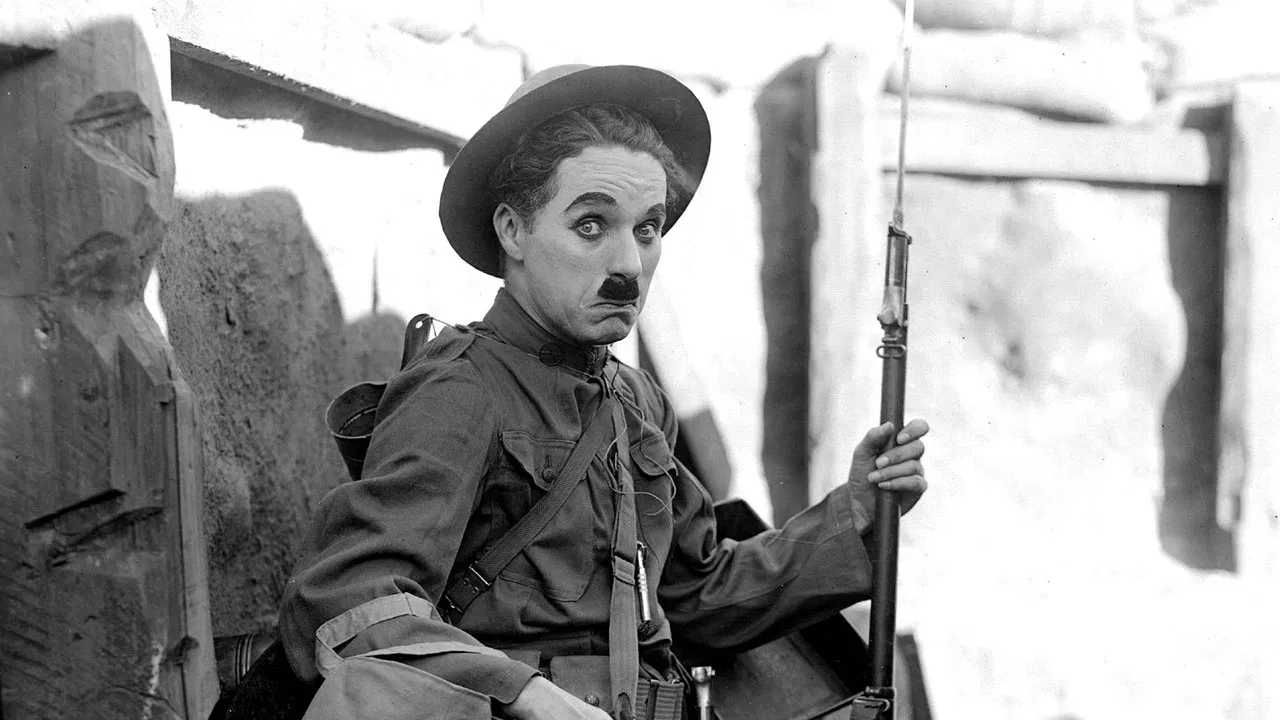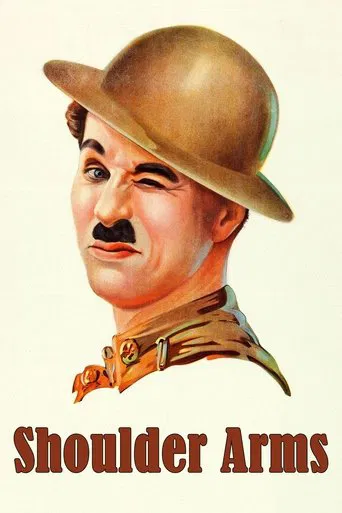

a film so unique, intoxicating and bizarre that it not only demands another viewing, but is also forgivable as a satirical comedy where the jokes eventually take the back seat.
... View MoreThe best films of this genre always show a path and provide a takeaway for being a better person.
... View MoreThe movie's neither hopeful in contrived ways, nor hopeless in different contrived ways. Somehow it manages to be wonderful
... View MoreWhile it is a pity that the story wasn't told with more visual finesse, this is trivial compared to our real-world problems. It takes a good movie to put that into perspective.
... View MoreI'm going to get straight to the plot with this film. Private Charlie Doughboy (Charlie Chaplin) is in boot camp in the US Army. Then he is sent to the Western Front in France. From there it's normal trench life. Until his platoon goes across no mans land and captures the German trench. From there Private Doughboy goes on an adventure. Disguised as a tree he saves a fellow soldier (Syd Chaplin) from being executed. Then he meets a girl (Edna Purviance) who ran an inn that was destroyed from artillery fire. Purviance is arrested and taken to a German officer but Private Doughboy saves her again and his comrade from earlier and even takes Kaiser Whilhelm (Syd Chaplin) prisoner. And then as it turns out it was all a dream. Although this was not the most correct representation of the trenches as they were way too clean in this film I still find it to be very enjoyable. I say go see this one.
... View MorePretty funny stuff. Charlie was still working towards his peak when he made this rather daring short about soldiers in the trenches of World War One. Daring because, after all, the war was still going on and this was a comedy about a serious business.The gags are amusing without being either hilarious or tear jerking. One successful scene follows another, as Chaplin and his comrades try to sleep in a bunker that is knee deep in water. (That's where we got the term "trench foot" from.) Probably the most ludicrous episode has Chaplin disguised as a tree and foiling any number of German soldiers as they try to execute an Allied soldier caught behind the lines. Edna Purviance, Chaplin's main squeeze at the time, is a woman who cooperates with the Americans and is saved from execution too.Chaplin would go on to do funnier and more ambitious things but this is better than most of his shorts during this early period.
... View MoreIn one of the best of Charlie Chaplin's lengthier short films, he places the Little Fellow in the trenches of WWI, where he brings his intolerable politeness and endless patience to the drudgery of trench life, where troops lived for months at a time before finally going over the top to overtake the enemy, and usually to their deaths. It takes someone of Chaplin's skill as a comedian to make something as dreary as trench warfare into such a brilliant comedy, but the irony that he uses in the film makes even the most uncomfortable conditions highly amusing.Like all of the best of Chaplin's films, short films and otherwise, this one is packed with brilliant and memorable scenes, such as the scene where he marks off kills with a piece of chalk on a board in the trench, erasing one when he gets his helmet shot off, the scene where he and his fellow soldiers are sleeping underwater, the opening of the beer bottle and lighting of the cigarette, and of course, the overtaking of the enemy. All of these scenes are show-stoppers, reminiscent of the most wonderful Chaplin scenes. This one should not be missed!
... View MoreCharles Chaplin's 'Shoulder Arms' of 1918 was his longest film to date, though, at just over 45 minutes in length, it was not quite a feature film. With World War One just drawing to a close, many popular entertainers of the time were doing their part to inspire their native troops, and Chaplin was no exception. And so the lovable Tramp went to war! The film begins with the Tramp in training, and the character is hilariously inept at even the simplest military drills, including marching and gun-slinging, much to the disgust of his drill sergeant. The Tramp then finds himself in the trenches, faced with a more formidable foe, though the Germans eventually turn out of be infinitely more incompetent than even he. The uproarious moment when the Tramp declares that he single-handedly captured thirteen German soldiers by "surrounding them" had me in stitches.There are plenty of other great moments in this film. Chaplin awaking to find his sleeping barracks underwater and being unable to literally find his own feet is hilarious, as is his ingenious use of a tube from a record player to sleep beneath the surface.However, the most memorable scenes in the film undoubtedly involve Chaplin skulking behind enemy lines disguised as a tree. The reactions of the bumbling German soldiers, unknowingly just metres from a sworn enemy, as they are single-handedly disabled one-by-one are highly amusing, especially when one soldier grapples an axe with the intention of cutting down a tree for firewood.This is a very enjoyable film, and one of the best of Chaplin's pre-1920 efforts. Highly recommended.
... View More